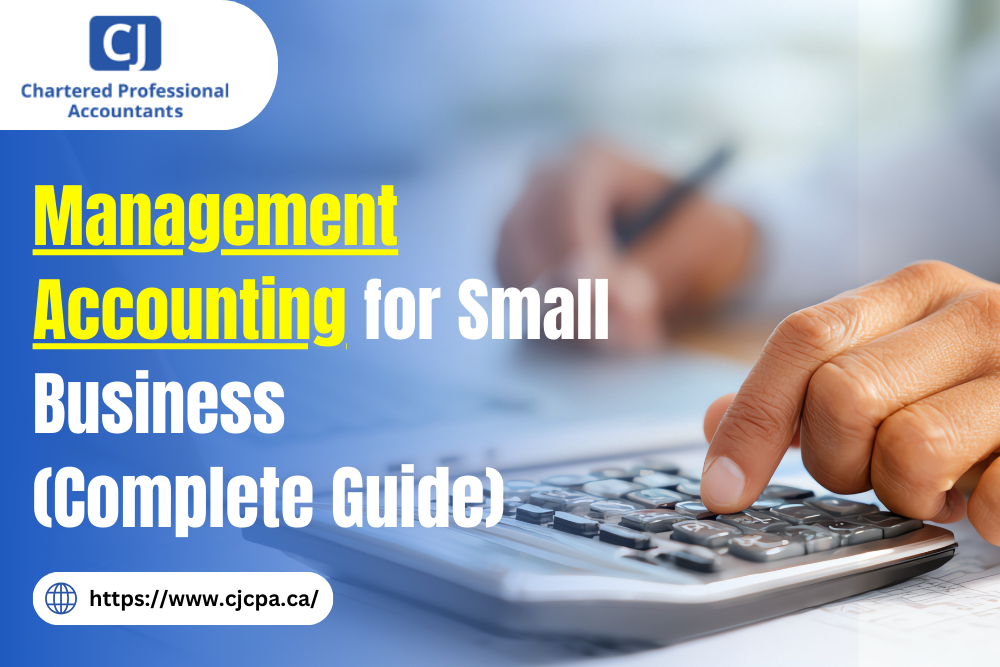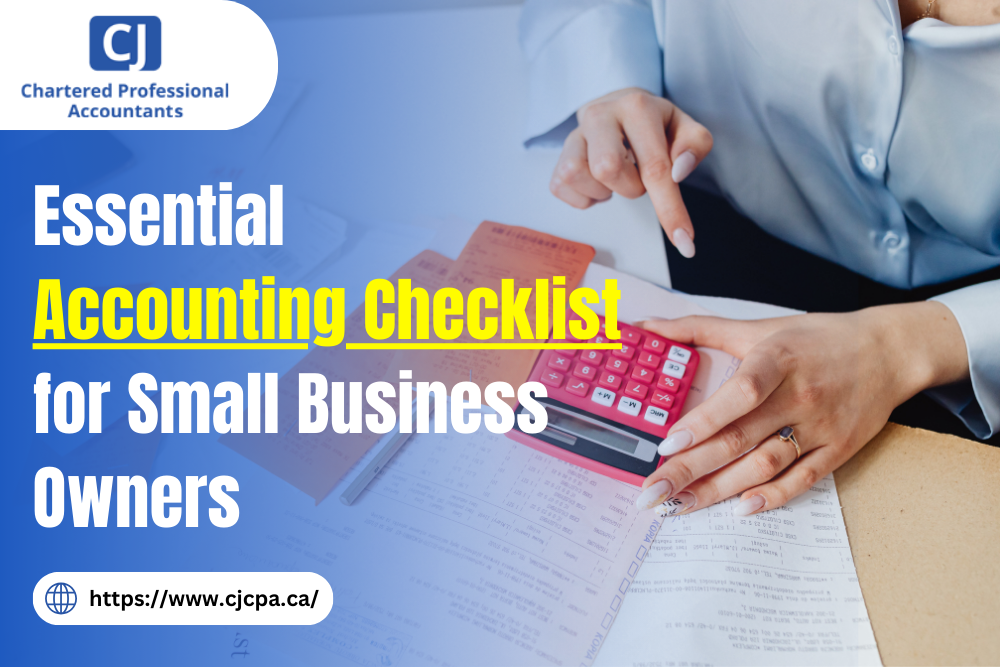Management Accounting for Small Business: Complete Guide
Stay updated with current accounting standards, business compliance, tax preparation tips, and latest news.

24 Nov 2025
Many small business owners manage their finances using basic bookkeeping or year-end reports but that only shows where the business has been, not where it’s headed.
That’s where management accounting (also called managerial accounting) comes in. Unlike financial accounting, which looks backward to report performance, management accounting looks forward, helping business owners plan, forecast and make data-driven decisions.
In this guide, you’ll learn what management accounting for small business really means, why it’s essential for growth and how to use it to improve profitability. We’ll also share practical managerial accounting tips and show how professional firms like CJCPA can support your financial management journey.
TL;DR
What is management accounting for small business and how does it help in better decision-making? Management accounting involves tracking, analyzing and interpreting your business’s financial data to guide internal decisions from pricing and budgeting to performance evaluation. It helps small businesses improve profitability, optimize spending and plan strategically using tools like cost accounting, performance metrics and forecasting.What Is Management Accounting?
Management accounting is the process of collecting, analyzing and reporting financial information for internal business use. Unlike financial accounting, which focuses on tax filings or investor reports, management accounting supports day-to-day decision-making. It provides business owners and managers with actionable insights on cost control, budgeting and performance tracking, helping them stay agile in a competitive market. In short, management accounting turns numbers into strategies that help small businesses make informed, data-driven choices.Why Management Accounting Matters for Small Businesses
- Drives Data-Backed Decision-Making
- Improves Cost Efficiency and Profitability
- Strengthens Budgeting and Forecasting
- Tracks Performance Metrics for Businesses
- Supports Long-Term Business Strategy
Core Functions of Management Accounting
Cost Accounting for SMBs
This function tracks both direct and indirect costs involved in production, operations or services. Cost accounting enables you to set accurate prices and improve operational efficiency.Budgeting and Financial Planning
A well-structured budget acts as a control system. Management accountants create budgets that align with strategic goals and monitor deviations to keep finances on track.Performance Analysis and Variance Reporting
Variance analysis compares planned results against actual outcomes. It helps detect early warning signs and supports continuous improvement.Forecasting and Decision Support
Forecasting predicts future revenue, expenses and cash flow scenarios, allowing small business owners to plan proactively rather than reactively.Internal Reporting and Management Dashboards
Modern accounting software enables real-time dashboards that summarize performance data, helping managers visualize their financial health instantly.Types of Management Accounting Reports
Budget Reports
Compare expected performance with actual results to track progress and adjust plans.Cost Reports
Identify areas where spending can be reduced or better optimized.Performance Dashboards
Visual tools that display metrics such as revenue growth, expenses and profitability trends at a glance.Forecast Reports
Help predict upcoming financial outcomes based on current performance and market factors.Break-Even Analysis Reports
Show how much revenue is needed to cover all costs, guiding smart pricing and sales targets.Managerial Accounting Tips for Small Businesses
- Keep financial data up to date - real-time data helps in quick, informed decisions.
- Leverage accounting software like QuickBooks, Xero or FreshBooks for automation and accuracy.
- Monitor cash flow and margins at least monthly.
- Review expense patterns and renegotiate contracts or subscriptions periodically.
- Conduct quarterly performance reviews to assess budget vs. actual performance.
- Consult with professional advisors for deeper insights and compliance support.


